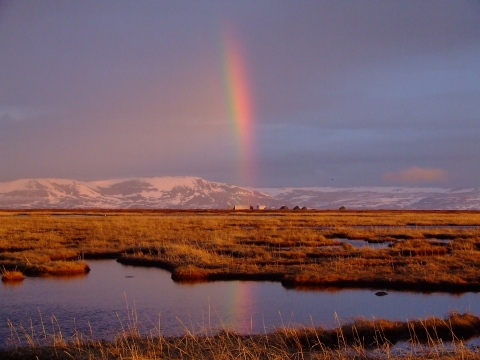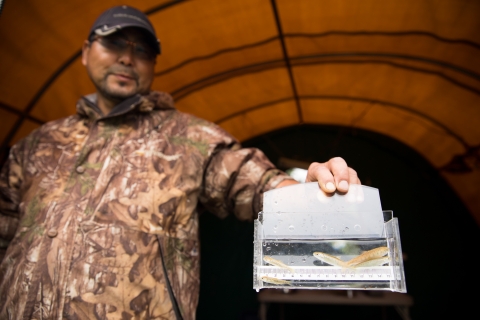This landscape is the ancestral home of the Yup’ik, Cup’ik, and Deg Xit'an people of Alaska. This is a region rich in culture, where residents depend on resources to support an active subsistence way of life. The Yukon-Kuskokwim Delta is among the most populated rural areas in Alaska, with over 50 Indigenous communities.
Visit Us
Experience the vastness of the tundra, the force of the Yukon and Kuskokwim Rivers, and the spectacle of wildlife migration at the Yukon Delta National Wildlife Refuge. The refuge offers various recreational opportunities to visitors and residents alike, including hiking, camping, fishing, birdwatching, and hunting. Visiting this refuge requires good advance planning: like most of Alaska, access to the refuge is by boat or small airplane, as there are no roads across the landscape. Please consider seasonal variations and variable weather conditions when planning your visit.
A visitor center and administrative office are located in Bethel, AK, within a 10-minute drive from the city airport. The office is open Monday – Friday from 8 am – 4:30 pm year-round, except for major Federal Holidays. Call ahead to to get more information about the refuge and how to plan your visit.
Location and Contact Information
- Refuge Visitor Center & HeadquartersView Details807 Eddie Hoffman State Highway Bethel, AK 99559
Our Species
Soaring in the sky, swimming through the waters, or roaming the land, the refuge protects a wide diversity of fish and wildlife species across the vast landscape of the Yukon-Kuskokwim Delta.
Projects and Research
The Yukon Delta Refuge works with partners and communities to conserve fish and wildlife populations and their habitats. Biologists conduct monitoring and research efforts on species of natural and cultural significance, and where adequate, provide the science to support sustainable subsistence opportunities in the Yukon-Kuskokwim region.
Current monitoring and research efforts include:
- Kuskokwim fisheries harvest surveys, with emphasis on Chinook salmon
- Monitoring and management efforts of emperor geese
- Monitoring of Threatened and Endangered species, such as Steller’s eiders
- Monitoring and management of Mulchatna caribou.

















